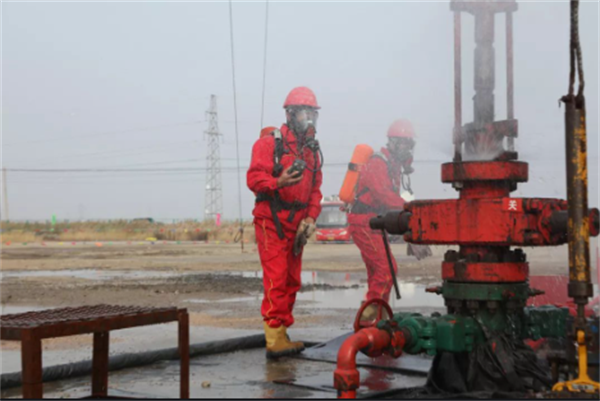Blowout is a phenomenon in which the pressure of formation fluid (oil, natural gas, water, etc.) is greater than the pressure in the well during the drilling process, and a large amount of it pours into the well-bore and ejects uncontrollably from the wellhead.The main causes of blowout accidents in drilling operations include:
1.Wellhead instability: The instability of the wellhead will lead to the inability of the drill bit to drill down-hole stably, thereby increasing the risk of blowout.
2.Pressure control failure: The operator failed to correctly estimate and control the pressure of the underground rock formation during the control drilling process, causing the pressure in the well-bore to exceed the safe range.
3.Bottom-hole Buried Anomalies: Anomalies in subsurface rock formations, such as protruding high-pressure gas or water formations, were not predicted or detected, so measures were not taken to avoid blowouts.
4.Unusual geological conditions: Unusual geological conditions in subsurface rock formations, such as faults, fractures, or caves, can cause uneven pressure release, which can lead to blowouts.
5.Equipment Failure: Failure or failure of drilling equipment (such as wellhead alarm systems, blowout preventers or blowout avoiders, etc.) can lead to failure to detect or respond to blowouts in a timely manner.
6.Operation error: The operator is negligent during the drilling process, does not operate according to the regulations or fails to implement emergency measures correctly, resulting in blowout accidents.
7.Inadequate safety management: Inadequate safety management of drilling operations, lack of training and supervision, failure to identify and prevent blowout risks.
These reasons should be carefully considered and dealt with to ensure the safety of drilling operations.

Post time: Aug-18-2023








 Room 703 Building B, Greenland center, Hi-tech development zone Xi’an, China
Room 703 Building B, Greenland center, Hi-tech development zone Xi’an, China
 86-13609153141
86-13609153141


